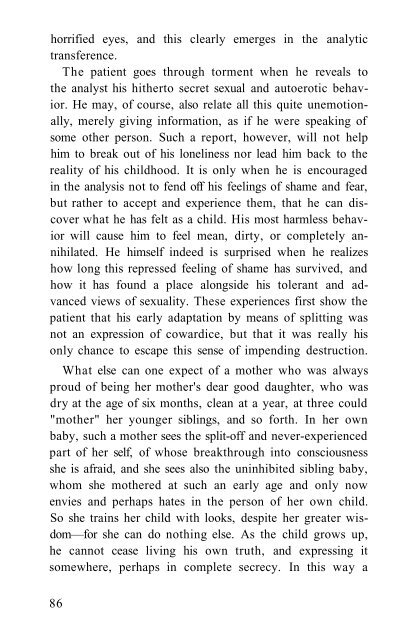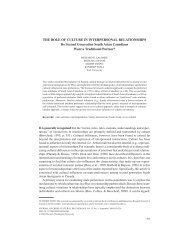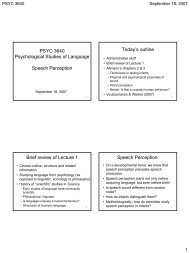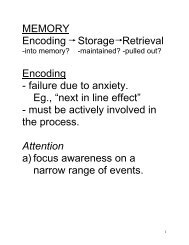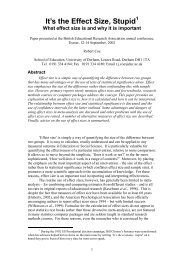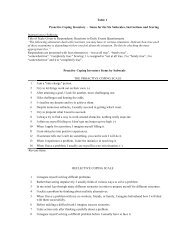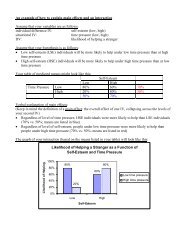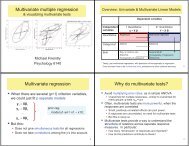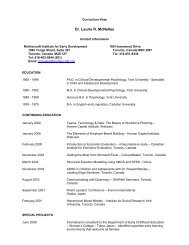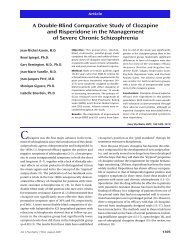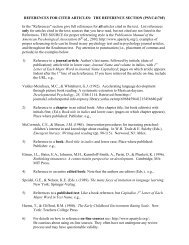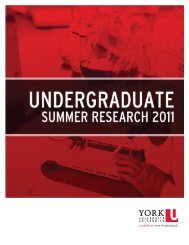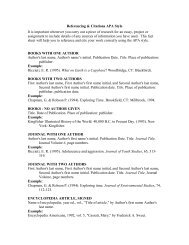The Drama of the Gifted Child (The Search for the True Self)
The Drama of the Gifted Child (The Search for the True Self)
The Drama of the Gifted Child (The Search for the True Self)
Create successful ePaper yourself
Turn your PDF publications into a flip-book with our unique Google optimized e-Paper software.
horrified eyes, and this clearly emerges in <strong>the</strong> analytic<br />
transference.<br />
<strong>The</strong> patient goes through torment when he reveals to<br />
<strong>the</strong> analyst his hi<strong>the</strong>rto secret sexual and autoerotic behavior.<br />
He may, <strong>of</strong> course, also relate all this quite unemotionally,<br />
merely giving in<strong>for</strong>mation, as if he were speaking <strong>of</strong><br />
some o<strong>the</strong>r person. Such a report, however, will not help<br />
him to break out <strong>of</strong> his loneliness nor lead him back to <strong>the</strong><br />
reality <strong>of</strong> his childhood. It is only when he is encouraged<br />
in <strong>the</strong> analysis not to fend <strong>of</strong>f his feelings <strong>of</strong> shame and fear,<br />
but ra<strong>the</strong>r to accept and experience <strong>the</strong>m, that he can discover<br />
what he has felt as a child. His most harmless behavior<br />
will cause him to feel mean, dirty, or completely annihilated.<br />
He himself indeed is surprised when he realizes<br />
how long this repressed feeling <strong>of</strong> shame has survived, and<br />
how it has found a place alongside his tolerant and advanced<br />
views <strong>of</strong> sexuality. <strong>The</strong>se experiences first show <strong>the</strong><br />
patient that his early adaptation by means <strong>of</strong> splitting was<br />
not an expression <strong>of</strong> cowardice, but that it was really his<br />
only chance to escape this sense <strong>of</strong> impending destruction.<br />
What else can one expect <strong>of</strong> a mo<strong>the</strong>r who was always<br />
proud <strong>of</strong> being her mo<strong>the</strong>r's dear good daughter, who was<br />
dry at <strong>the</strong> age <strong>of</strong> six months, clean at a year, at three could<br />
"mo<strong>the</strong>r" her younger siblings, and so <strong>for</strong>th. In her own<br />
baby, such a mo<strong>the</strong>r sees <strong>the</strong> split-<strong>of</strong>f and never-experienced<br />
part <strong>of</strong> her self, <strong>of</strong> whose breakthrough into consciousness<br />
she is afraid, and she sees also <strong>the</strong> uninhibited sibling baby,<br />
whom she mo<strong>the</strong>red at such an early age and only now<br />
envies and perhaps hates in <strong>the</strong> person <strong>of</strong> her own child.<br />
So she trains her child with looks, despite her greater wisdom—<strong>for</strong><br />
she can do nothing else. As <strong>the</strong> child grows up,<br />
he cannot cease living his own truth, and expressing it<br />
somewhere, perhaps in complete secrecy. In this way a<br />
86


